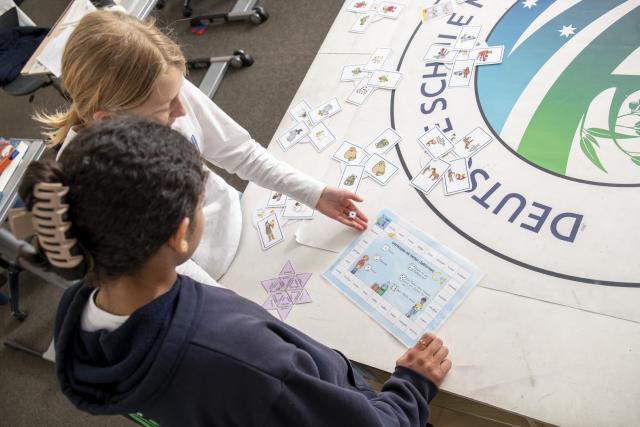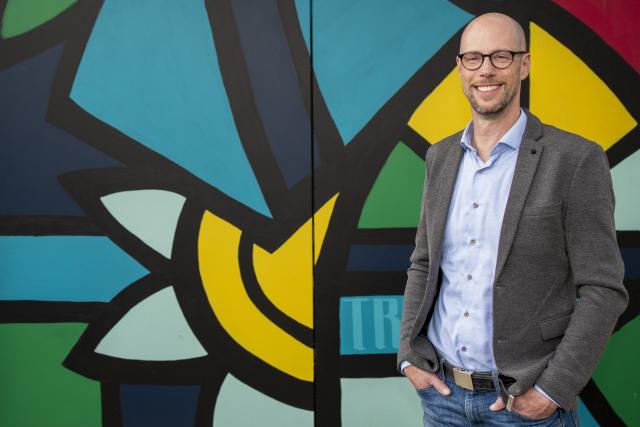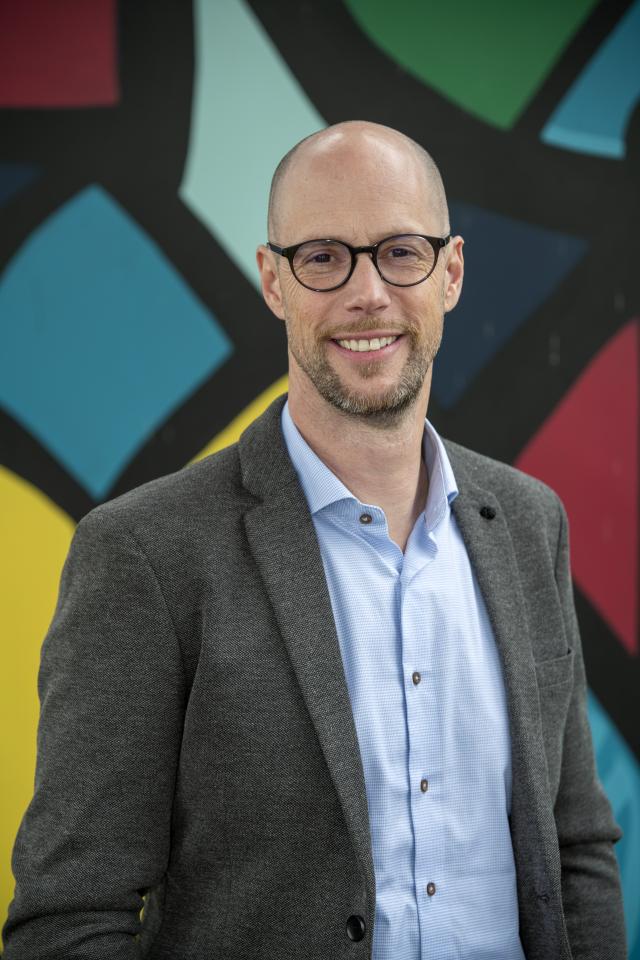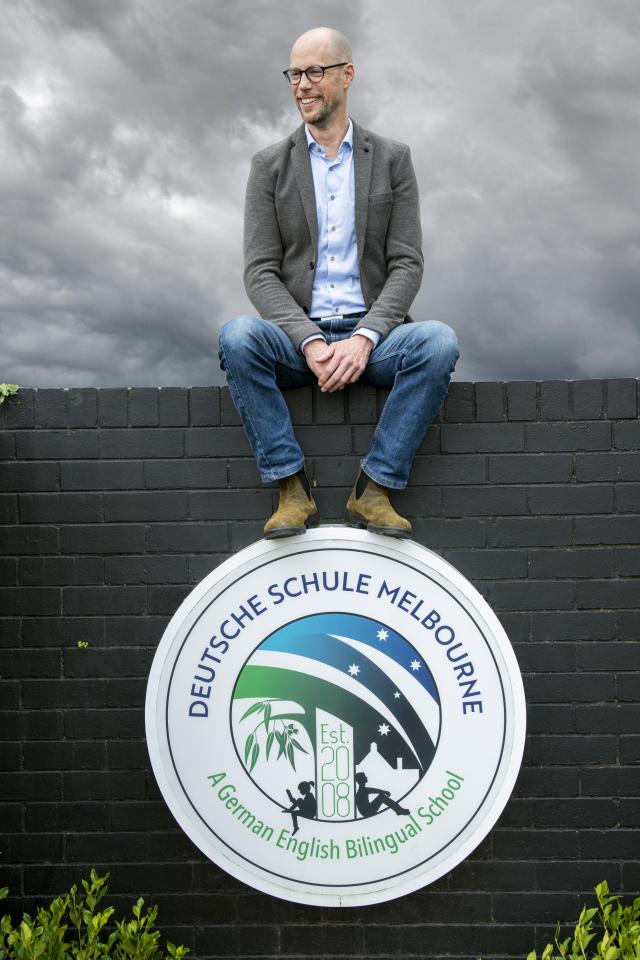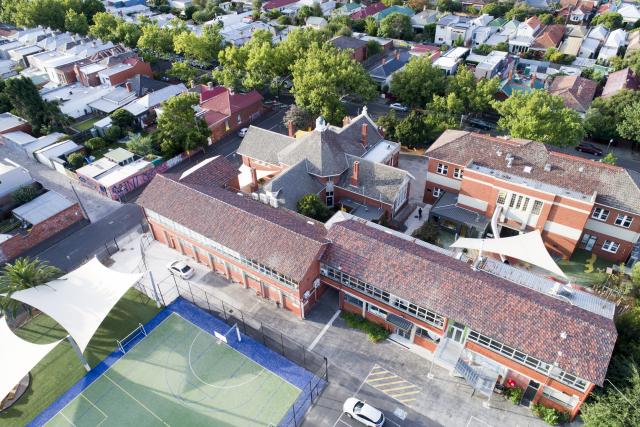In a good challenge, there’s even greater opportunity.
That’s the ethos of principal Jörg Dopfer, who has introduced a late-entry program at Deutsche Schule Melbourne (DSM) – a bilingual primary school in Melbourne’s inner north.
Since 2008, the primary school in Fitzroy North has been providing a German-English immersive bilingual education to children who usually start in the school’s Foundation Year.
But from next year, DSM will open its doors to students in Years 3 to 5 with no prior German language skills.
The newly-appointed Mr Dopfer says he looks forward to seeing students embrace the challenge of the transition, and tap into the benefits of bilingualism.
“Students will be keeping up with a new language and new content at the same time – it’s an environment where they’re learning how to solve problems every day,” he says.
When Dopfer ran a similar program with refugees in Germany, he was initially sceptical about how easily children could learn the language at a later stage, alongside their regular schooling.
“When we started in Germany, I wasn’t sure if it would work out for the kids, if it would be too overwhelming,” he says.
But he found the opposite to be true.
“The experience was amazing. I saw students manage all the tricky parts of their education while also learning another language – many progressing to the highest levels of academic success in Germany.”
Now at DSM, he’s taking on a similar challenge, albeit with a slight twist.
“In Germany, we didn’t need to explain to students why it was important to learn German. They understood they needed to learn the language to be part of that society,” he says.
For students here, he knows the motivation will be different.
“There needs to be a driver to be doing this – within both the child and the family,” Mr Dopfer says.
That could be the desire to be a part of the global community, or simply a natural inclination to push for academic success.
“Starting out, a bilingual environment can be demanding – that’s something I would always tell parents coming in. But for children who are curious and creative, who love thinking outside the box, it’s incredibly rewarding too,” he says.
“When our students graduate, they speak two languages to a near native speaker level – it develops their intercultural awareness and boosts their self-confidence.”
The new program consists of three parts: German language lessons, content and language integrated learning (CLIL) classes, and immersion classes with the students’ regular cohort.
CLIL classes help students learn a new language by teaching content – such as maths, sciences and humanities – in German, with help in English where needed.
To develop the program, DSM enlisted the help of Dr Averil Grieve, an applied linguist at Monash University.
“The cognitive, social and academic benefits of a bilingual education are well-established,” she says.
“And DSM’s approach of combining intensive language classes with CLIL is best practice for helping children thrive in that environment.”
The program has been specifically designed for students in Years 3 to 5, an age Mr Dopfer says naturally lends itself to exploring new ideas.
“At those ages – 9, 10 and 11 – children start to engage more with the world around them. So it’s an exciting time to introduce them to different languages and cultures,” he says.
To make sure their lessons are consistent with their progress, teachers will develop individualised learning plans for each student.
“Our goal is to have children fully integrated into the existing bilingual program within six to 18 months, moving into more immersion classes as they develop the language skills they need to do so,” Mr Dopfer says.
He says the benefits of a bilingual education can’t be overstated, that it’s as much about the possibilities it opens later in life as the cognitive abilities you gain along the way.
“A bilingual education gives students a global mindset. But our German curriculum also has a strong problem-solving focus – offering children many opportunities to develop competencies rather than just skills,” he says.
“These competencies are essential for critical thinking – which is what our young students need to tackle the social and global challenges of tomorrow.”
“I’m looking forward to opening that opportunity up to more students with this new program.”
The DSM Accelerated Pathway program begins in February 2023.
The school invites families who are interested in the program to enquire today. Scholarship opportunities are also available.


